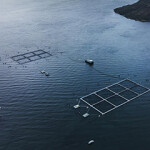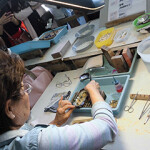Seven & i Holdings among Japanese supermarket chains working toward eco-label goals

A handful of Japanese supermarket chains, including AEON, the Japan Consumers’ Cooperative Union (JCCU), and Seven & i Holdings, have been early adopters in the country of procuring and marketing eco-labeled seafood products – with the latter two companies setting specific sales targets.
In 2018, JCCU set a goal that Marine Stewardship Council (MSC)- and Aquaculture Stewardship Council (ASC)-certified product sales would comprise 20 percent of total seafood sales by 2020. Even though the company fell short of this target, in 2021, the cooperative raised the objective to 50 percent or more by 2030.
Seven & i Holdings, which is based in Tokyo, has set similar goals for its subsidiaries. Seven & i Holdings owns the major supermarket chain Ito-Yokado, the regional supermarket chain York-Benimaru, the convenience store chain 7-Eleven; and operates Japanese locations of the restaurant chain Denny’s.
In the company’s Green Challenge 2050, originally formulated in 2019, the company set targets for carbon dioxide emissions, reducing plastic use and food loss, and attaining sustainable products. For marine-product procurement in particular, the goal is that 50 percent of the company’s house-brand products will be sustainably sourced by 2030 and 100 percent will be by 2050.
Yuuto Mabuchi, who oversees the procurement of fresh fish within the company’s Seven Premium Development Strategy Department, told SeafoodSource that MSC and ASC standards were originally the dominant credentials among eco-labels, but as more sustainability schemes have received recognition from the Global Sustainable Seafood Initiative (GSSI), the company’s eco-labeled offerings have become more diverse.
“In particular, the percentage of MEL [Japan’s Marine Eco-Label] [products] is increasing. Of the marine products sold under the company’s house brand – Seven Premium – MSC-certified products accounted for 8.1 percent and ASC accounted for about 3 percent,” he said, referring to data that covered fiscal year 2022.
Besides MSC, ASC, and MEL standards, Seven & i considers many Alaska-origin products to be sustainably managed and works closely with the Alaska Seafood Marketing Institute (ASMI) to market Responsible Fisheries Management-certified products labeled with ASMI’s “Alaska Seafood – Wild, Natural & Sustainable” logo. The company’s Ito-Yokado supermarket chain sells black cod, red salmon, and salted salmon roe labeled with the mark.
Many fisheries in Alaska receive certification through the RFM scheme operated by the Certified Seafood Collaborative (CSC), based in the state capital of Juneau, and stores that offer related products must obtain chain of custody certification when repacking such products in their stores.
While the number of eco-labeled items is increasing over time, Mabuchi believes ...
Photo courtesy of Seven & i Holdings




Share